#all I could hear was music
Text
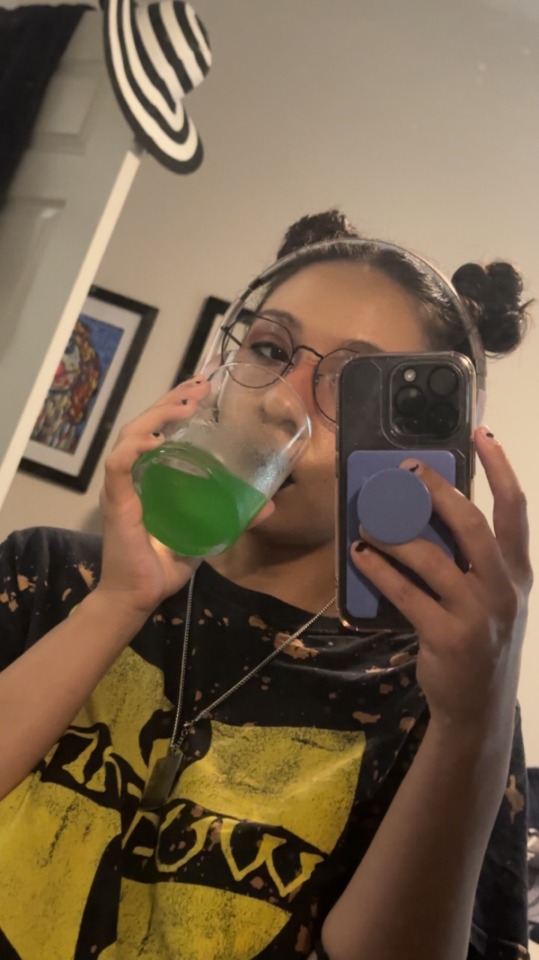
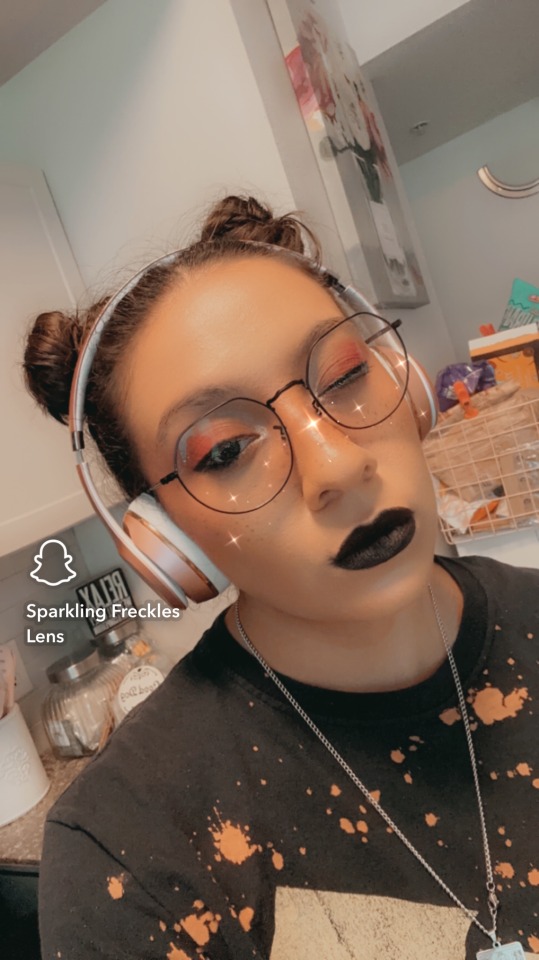
Also hello what’s up cunts I’m cute today; behold
#thank god Snapchat is there to tell you I do not have sparkly freckles naturally#pro tip if you think you do not need over the ear headphones for noise sensitivity#yes you do#do you know how pleasant doing the dishes was just now#all I could hear was music#no clanking or constant rushing#fucking incredible#I’m in my own little bubble#and on the tail end of shrooms
4 notes
·
View notes
Text
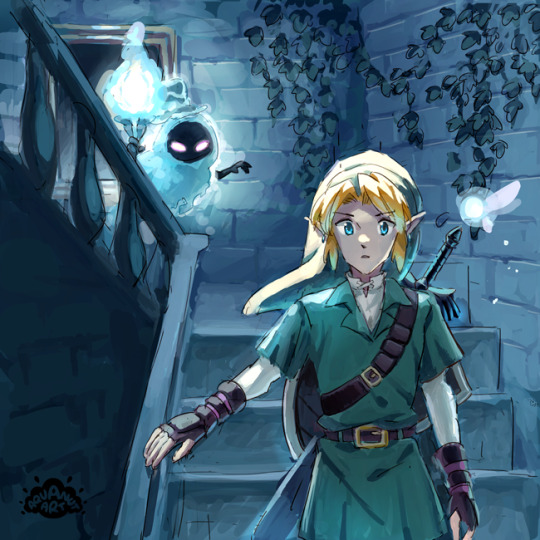
#zelda#legend of zelda#ocarina of time#link#linktober#day 13: phantom#aquanutart#actually i meant to do this for day 2: temple but ...#i guess i could really stretch it and say it's day 15 favorite character (oot link)#i listened to the forest temple music while working on this until i couldn't take it anymore#i hear it in my head when i look at this#the haunted paintings are so cool. this temple is amazing#i love how it's not dark and claustrophobic all the time but also has these bright outdoor areas that are eerily overgrown and abandoned#and then it whiplashes you into stuff like the twisted hallways. it's so cool#i'm not really into spooky/scary stuff but eerie with a sense of implied history and mysteries from years ago? go for it#also the wallmasters teaching us all to deal with anxiety in adulthood#(that is: sense its lurking presence; dodge it when it falls; slash it apart but dont let it split into smaller ones that run away from you
3K notes
·
View notes
Text
do you ever wake up and your brain is like SONYA IS GOOD, NATASHA IS YOUNG AND eurydice was a hungry young girl... (NINAROSARIOTHEBARRIO'SBEST!) heather... heather... heather... DIVORCED BEHEADED DIED veronica? veronica??? VERONICA!!! ...and MR HERMES THAT'S ME! (...naomiiiiii...rodrigueeez...) beetlejuicebeetlejuicebeetlejuice HEY BALAGA HO BALAGA HEY HEY HO BALAGA... AND LAFAYETTE ANDREY ISN'T HERE!!! DIVORCED BEHEADED SURVIVED (i am usnavi and you probably never heard my name) and what about pierre... what about pierre... what about pierreeeee... AND PEGGY!
#i am fine i swear#sometimes all those musicals are just blended together in my brain#yesterday i had a fragment of a song stuck in my head#and i was like 70% sure it was from the great comet#but it could also be heathers bettlejuice or hadestown#(turns out it was the great comet)#(i had to listen to the whole thing to be sure)#god help me why am i like this#natasha pierre and the great comet of 1812#hadestown#in the heights#heathers#six the musical#21 chump street#beetlejuice#hamilton#(ihatemyself)#(this is a cursed post)#but sincerely can you hear me?*
329 notes
·
View notes
Text
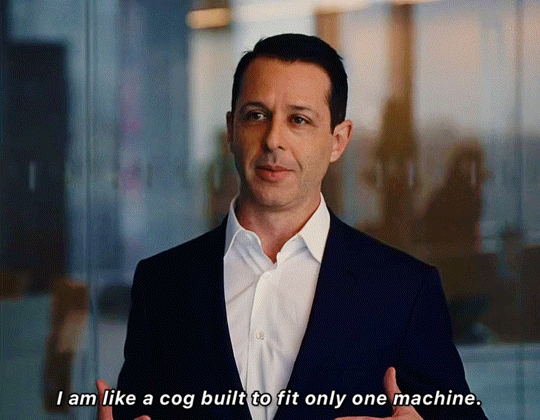
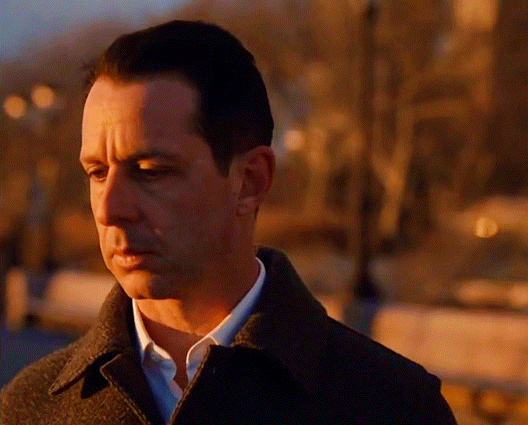
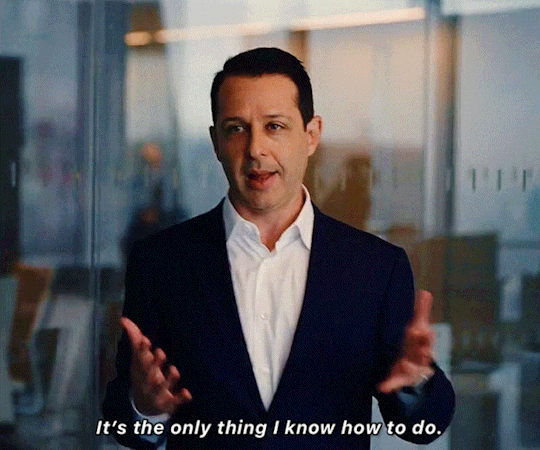




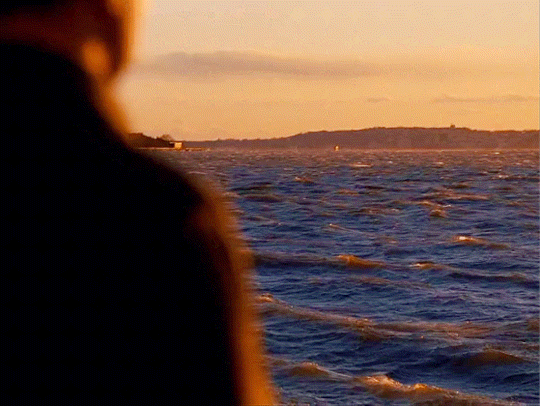
He promised it to me when I was 7 years old.
SUCCESSION 4.10 WITH OPEN EYES
#successionedit#successiondaily#succession#tvedit#userlauren#kendall roy#succession spoilers#jeremy strong#my gifs!#kendall girlies how are we coping?#no seriously how? i’m still in denial 🥲#during that last scene i was waiting for him to speak to say anything but when the music went quiet all i could hear was water 😭
703 notes
·
View notes
Text
You can horny post and thirst for Circe and Calypso without making fun of Odysseus, a victim of both, btw. 👍
#You realize you're calling a victim a little bitch right? Do you hear yourself?#You call a man who spent every day crying about wanting to go home and who had his friends held at pig-point names?#A WHORE?!#You could literally just be like “I would love to make potions with my wife Circe” or “Beach life with my wife Calypso” but no.#You had to call the survivor names as well#I love Circe. she's morally gray af and super fun to write but I can think she's cool while knowing she terrified Odysseus.#save me morally gray circe#Mad rambles#shot by odysseus#Mad rants#odysseus#circe#calypso#odyssey#the odyssey#tagamemnon#greek mythology#epic the musical#It makes me want to eat a cactus. It's not cute to do this.#Thirst all you want. I don't care. But you don't have to mock a victim of them to do so.#tw sa mention
135 notes
·
View notes
Text
Does anyone else remember the Tony Hawk’s American Wasteland video game soundtrack with the emo band covers of classic punk rock songs or was that a fever dream?
#personal#I loved all Tony Hawk games though in all seriousness.#I think I could say those and the Guitar Hero’s/Rock Band’s help contribute to my music taste.#I remember when you can go into the settings and turn off the songs you didn’t want to hear on the Tony Hawk games.#I would have the same 5-10 songs playing over and over again in every game.#American Wasteland was the best one music wise.#Also maybe it was my favorite to play through too. That and Underground 2.
98 notes
·
View notes
Text






"...What is it?"
"The drums...they mean trouble. I shouldn't be here—"
"I want to see you again—"
"I can't—"
"Please don' t leave—"
"—I'm sorry."
"..."
"...I have to go now."
—Pocahontas (1995)
#tfw ur really connecting with a guy and the fucking air raid sirens go off#pocahontas (1995)#disneyedit#pocahontasedit#pocahontas x john smith#pocahontas#john smith#they were all feeling a kind of way at the studio huh?#but fr like her look of panic when she hears the drums always stuck with me as a kid#and only now am i realizing the reason those drums are probably a Big Deal is bc her tribe JUST got done fighting a war with another tribe#she's been hanging out with smith all day. she doesn't /know/ that a scouting party had been sent out and one of her own got shot#she was just tailing the one guy on her own and then having a whole musical number and flirting n having a good time#and all of a sudden the red alert is blaring and now she's having war flashbacks#literally those drums could be for anything as far as she knows. i'd be on edge too.#also this lil animation sequence is so interesting#it strikes me as very 'old hollywood' in the blocking and the body language#it's the 'oh but we mustn't!' of it all#ahhh i'm a sucker for it every time#queso*edit#queso*gifs
169 notes
·
View notes
Text
Underrated moment that (understandably) got kinda covered up:
Imogen communicating telepathically with Ashton to see how the transfer is going and just hearing an endless mantra of From the earth, Of the earth, To the earth
#critical role#cr spoilers#which is a very interesting thing for ashton to be using to ground (heh) themself#i could imagine in the animated scene#hearing the building music#the muffled outcries of the BHs trying to save them#and in front of it all clear as day#ashton repeating those words#growing in volume till they lose definition and are just a scream#as the fire goes through him
155 notes
·
View notes
Text
wait i just realized... the mastersword isnt even important enough to warrant zelda doing to such extreme lengths to repair it bc its NOT EVEN REQUIRED FOR DEFEATING GANONDORF
idk about you but the mastersword being not just this weak after all this but also not even required is like ... hurting the whole plot SO bad
for all that zelda knew she was basically killing herself by doing the dragon thing ONLY for the mastersword, which isnt even needed to reach the end
why do the dragon thing at all??? she could have put it in some other divine place for it to recover (she knew where the springs are, she knew where the krog forest is, heck she even knew where the forgotten temple is BC THEY WERE ALL THERE* and im not going to belive any of them came into existence afterwards), in botw it took 'only' a 100 years to regenerate the damage it took in botws past which, while not as extreme as in totk, was pretty bad! yeah it gets outright broken in totk but like ... really? far over 10 000 years to recover it? through ZELDA? one of the most divine being IN THE FORM of one of the most divine beings aside from the very gods themselves?? whats the use of it being able to regernate if it takes THAT long?? feels easier to forge a new one for that matter??
and the excuse that "it needed to be able to resist miasma" is like .. why tho? yeah ok fine i could do the entire bossfight with JUST the mastersword, but again, its not required! i can do it with anything else!! and its doesnt cleanse miasma either, like the sword did in tp when you could do away the twilight stuff when it got the super glow stuff
so its really like ... she did that JUST for the sword? really?
the fact that her becoming a dragon is the way to get her back into her time isnt something she could have known and it working out like that makes it feel like a massive fail of the writers bc it makes it feel less like an actual decision she made for good reason and more bc its a decision the writers made bc the writers already knew where it would end, the writers knew shed be turned back in the end no problem so they had her do the dragon thing despite it being pretty senseless from her perspective
(wouldnt it have felt more in character and logical to put the mastersword somwhere safe where it can recover over all those centuries and search for a way to return to her time herself? like in these two games ZELDA feels like the more important thing that the sword, -zeldas prone to sacrifice herself for other- WHY! its better for everyone if you are alive rather than dead! you got to this time by yourself and also somehow not jsut shifted the time but also PLACE bc you sure as hell didnt appear in a cavern in the middle of the land, you have wielded incredible magic before and are a researcher, surely theres some way for you to at least TRY to return on your own??
how cool would it have been to find little markers and spots where clearly she has left you some sort of message, maybe like a way for you to do something that helps her in the past, USE THE WEIRD ASS TIME BUBBLES FROM THE TUTORIAL AGAIN!! send back something she needs to return! go and talk with impa and purah to determine what shes trying to tell you, help her along the way and in the end she makes her triumphant return, having grown and learned with what she did instead of regressing her chaarcter to the big eyed maiden that you get as a reward at the end through unsatisfying bs reasons and hurray she doesnt even remember, perfect little fairytale of no consequences wahoo- im salty about this let me be salty-)
you can absolutely combine a free to explore open world with good story without restricting it by much, like locking the bossfight behind aquiring the mastersword doesnt feel like that big of a change and its not making it a whole lot more linear, most people do it anyway right?
(also a thing im doing in my rewrite of it is locking certain things for some parts, it just makes sense if you are trying to tell a story, but its pretty clear now they werent trying to do that, just throw you into a box of virtual toys, and i think thats just sad)
*yeah actually whats up with the sonau/rauru putting their little nuclear super weapon storage room inTO THE ANCIENT RELICT OF THE FORGOTTEN PAST TEMPLE BEHIND THE BIGGEST STATUE OF HYLIA IN EXISTENCE?? you cant tell me all those ancient ruins (springs, forgotten temple) were made AFTER all of the shitshow that went down in totks past; putting it behind that statue? building it into there feels incredibly disrespectful, maybe it makes more sense if you just see it as the devs wanting to put somethign new there, but if you consider it in universe its just ??? also HOW is any of it in such a good shape??, it looks like they buried sonia there a year ago, the structures look like they just came out of a 3d printer despite supposedly being older than their recorded history??
on that note ... how does the room with the order and location of zeldas tears make sense .. are you telling me someone of the past ran around after dragon zelda recording where her fucking tears went down and what markings it made on the ground and then built a room next to the nuclear weapon storage room with the laughably unceremonial grave of the fucking queen just to put all that into statue form? also none of the geographical things changed in ALL that time?? the castle is drawn on there too so i guess that was super fresh then since it "was built above ganondorf as a symbol of royal blahbla"
at least in botw you had the photos on your SHIEKAH stone to recover them once you found the place they were taken in, it felt so organically integrated ..
#ganondoodles talks#zelda#totk#ganondoodles rants#this game drives me nuts (derogatory)#random ramblings ramble#the fact that all the sonau stuff is basically unscathed through all that time is like#that looks less ancient than the shiekah stuff#actually kinda boring#like unpainted blocks of toys#it just all doesnt fit together in my eyes#its gonna bother me forever#you had it all and didnt do anything with it#i love botws world#it had so much potential#never gonna get over the lost potential of it all#this could have been so epic#whenever i hear the trailer music my heart hurts bc i just have to imagine what it would be like#what i thought it was gonna be given the fantastic music#still dream of painting like a trailer for my totk rewrite using the trailer music#but god that aint doable#and would be nuked ofthe internet in an instant lol
179 notes
·
View notes
Text
"Minkowski's been talking about Sondheim again…": Minkowski's love of musical theatre and what it reveals about her characterisation and her relationships
TL;DR: Renée Minkowski's love of musicals, while it might seem just like a mundane character detail, is used to give depth to her character because it contrasts with expectations of her from both the listening audience and the other characters. Her willingness or unwillingness to share this interest in different circumstances reveals her relationships with other characters at various points.
Since this is a long one, if you'd rather read it as a document, you can view it here: Google Doc version.
"She actually really cares about these talent shows": Episode 8 (Box 953)
In the early episodes of Season 1, Minkowski is presented (largely through Eiffel's unreliable perspective) purely as a strict no-nonsense authority figure without much emotional depth, the kind of person who only likes things that are useful, purposeful, or mandated by Command. In contrast, musical theatre is a creative pursuit that has nothing to do with the mission of the Hephaestus and is viewed by many people as fairly frivolous or silly. The gradual exploration of Minkowski's passion for musicals is one of the many ways that the show expands and challenges our understanding of her as a character.
The first indication that we get of her interest in musicals is through her entry into the infamous talent show, something that is required as part of the mission. Minkowski really cares about 'crew morale' activities in general, even when they actually have a negative effect on morale and even before she's friends with any of her crew (for example, the Christmas and Thanksgiving dinners in the earlier stage of the mission), perhaps partly because doing things in the "right way" is important to her.
But Eiffel senses that the talent shows aren't just about rules for her: "it’s bad enough when she makes us do something just because it’s military protocol, but I think that she actually really cares about these talent shows". This might be the first indication that we get of Minkowski caring deeply about anything that isn't inherently part of her role as a Commander. Moments like this are part of the gradual process of giving us insight into her character beyond the Commander archetype that she tries to embody. And yet, she only indulges her theatrical passion because something mandatory gives her permission, or an excuse, to let another part of herself out.
Of course, to satisfy the needs of a talent show, she'd only need to provide a performance of a few minutes. But Eiffel mentions "the second act of the play" - which along with Hera's comment that "Isabel isn't the biggest role in the play" - implies that Minkowski was intending to put on the whole of Pirates of Penzance as her talent show act, rather than a few of the songs or some kind of medley. (I suppose that Eiffel could be exaggerating or Minkowski might have been planning to do extracts from different parts of the play, but I prefer the interpretation in which Minkowski gets to be more ridiculous.)
Even though no one else would be willing to be in her production of Pirates of Penzance, Minkowski casts Hera as Isabel, a role with two lines and no solo singing. I found some audition notes for this play which said "The traditional staging gives [Isabel] more prominence than the solo opportunities of the part suggest, so she must be a good actress" which does make me sad in relation to Hera's inability to have a more significant role by being physically present on stage.
It’s sweet that Hera still wants to take part though. She tells Eiffel "Pirates of Penzance is a classic of 19th century comic opera", so either she’s absorbed what Minkowski has told her about the show, or she’s done her own research and formed her own opinions. I enjoy the fact that Hera is the one Hephaestus crew member who shows potential to share Minkowski's musical theatre appreciation; I like to think that this is something they could explore together post-canon.
Anyway, I'm obsessed with the idea that Minkowski was planning to play every character except one in Pirates of Penzance, a show which is designed to have 10 principal characters and a chorus of 14 men. It seems that her contribution to the talent show was supposed to be an entire two-hour two-act musical, with costumes and props, in which she would play almost all of the parts. This is very funny to me as the perhaps predictable consequence of giving an ambitious and frustrated grown-up theatre kid a position of authority and asking them to arrange a talent show. Minkowski knows that the audience will be made up of her subordinates who are theoretically obliged by the chain of command to watch and listen, so she absolutely tries to make the most of that opportunity. There's probably also a degree to which she limits other people's involvement in her musical because - as with her other endeavors - she wants the outcome to be almost entirely within her control (something that is usually pretty much impossible in as collaborative a medium as musical theatre).
Of course, Minkowski's behaviour in most of the talent show episode is affected by her being drugged by Hilbert. This creates an exaggerated situation which is the first real opportunity for Minkowski to be something other than the strict sensible authoritarian Commander and the foil to Eiffel's jokey laid-back attitude. I don't agree with ideas that being intoxicated brings out anyone's true self (especially in the absence of consent for the intoxication), but it seems pretty clear that being under the influence of whatever was in Hilbert's concoction caused Minkowski to fully commit to a level of manic enthusiasm for her musical production that might have otherwise been obscured by her professionalism. It's a particular kind of person who belts showtunes when drunk, and Minkowski is that kind of person, even if that's not how she wants to present herself. (As a sidenote, I seem to remember that they took Emma Sherr-Ziarko's script off her to help her sound more drunk. It's an excellent performance.)
Minkowski wants interval ice cream. She wants "pirate costumes" (and she'll threaten to shoot a man to get them). She wants "swashes and buckles". She wants whatever props she can get her hands on (including a real cannon). This show is important to her, even though only three other people will witness it and two of them actively don't want to be there. It’s important to her for its own sake.
Eiffel says Minkowski wants "a second pair of eyes to tell her if the prop sabre for her Major-General costume was a bit much…" While I certainly wouldn't put it past Goddard Futuristics to have a prop sabre on the station for no apparent reason, it feels more likely that she might have made it or adapted some existing item. Which suggests that maybe she was that passionate about the props even before Hilbert drugged her.
Even so, it does feel significant that Minkowski's love of musicals is only revealed in the episode in which she is drugged, exhibiting lowered inhibitions, exaggerated behaviour, and an "impaired euphoric effect". Her love of musical theatre is initially revealed through a professional structure that provides permission, and then further emphasised by a forced intoxication that exaggerates some impulses that perhaps she already had.
"Some hobbies other than making trains run on time": Episode 17 (Bach to the Future)
After Eiffel tells to find Minkowski to find something else to do while her work duties have quietened down, they have the following exchange:
EIFFEL: You must have some hobbies other than making trains run on time. Something to do with friends? Boyfriends?
MINKOWSKI: Of course I do, but, well, there aren't really a lot of opportunities for rock climbing or trail hiking in the immediate vicinity.
Even though this quote doesn't mention musicals, I've included it here for two reasons. Firstly, it's very funny to me that, even after the talent show debacle, Eiffel acts like he's never had any evidence of Minkowski's hobbies. She tried to perform a whole play almost single-handedly and it didn't occur to him that this might indicate an interest of hers outside of work. I think this reflects the fairly two-dimensional view that Eiffel has previously had of Minkowski, which her interest in musical theatre didn't fit into.
Secondly, it feels notable that Minkowski doesn't mention musical theatre here. She wants to show that she has non-work interests, but without undermining her own authoritative image. Her interest in rock climbing and trail hiking - while it may be genuine - fits with how she wants to be seen as a Commander. These are hobbies which portray her as physically capable, with a high degree of stamina and a willingness to adapt to perhaps less hospitable surroundings. Of course, Minkowski does have these traits and they serve her well on the Hephaestus. But there's not really anything particularly surprising about her expressing these interests. The surprise in this scene comes from the reveal that she has a husband, a character detail which - like her love of musicals - isn't something we'd necessarily expect from the archetype-based view of her we are initially presented with.
Her interest in rock climbing and trail hiking never come up again, because these details don't really deepen her characterisation (or at least, they aren't really used to deepen her characterisation beyond proving that she isn't entirely all-work-and-no-play). In contrast, Minkowski's love of musicals is brought up over and over because it shows another side of her that she struggles to reveal on the Hephaestus, and that allows more interesting things to be done with her characterisation.
"You wanted to write showtunes": Episode 35 (Need to Know)
Alongside the more high stakes discoveries prompted by the leak from Kepler's files, we also learn that Minkowski applied to - and was rejected from - the Tisch Graduate Musical Theater Writing Program.
Up until this point, we've only had evidence that Minkowski enjoys performing in musicals. But here we learn that Minkowski doesn't just love watching or performing in musicals - she wanted to write them too. This suggests a creative side to her that we never see her fully express.
The course
The Tisch Graduate Musical Theatre Writing Program claims to be the only course of its kind in the world and it accepts just 30 students each year. The current application process requires applicants to: upload play scripts or recordings of songs they've written; answer a large number of extended response questions about their creative process and views on musical theatre; write a 'statement of purpose' which has to talk about why they are applying and include 3 original ideas for musicals; provide a professional resume and a digital portfolio; complete an exercise of writing in response to a prompt; and undergo an interview. The process might have changed somewhat since Minkowski would have been applying (which, if it was soon after she finished college, might have been around the early 2000s) or it might be different in Wolf 359's alternate universe, but I think we can safely assume that applying to this course was a serious undertaking that required an intense amount of commitment and work.
Applying to a course like that isn't something you do half-heartedly or on a whim. You couldn't apply to this course if you hadn't done a fair amount of musical theatre writing already. (The course requires applicants to choose to apply as bookwriters, lyricists, or composers, but I'm not going to make a guess here as to which of these Minkowski went for.) The fact that Minkowski wanted to study this course suggests that she was seriously considering trying to make a career out of musical theatre writing. In Once In A Lifetime, she tells Cutter that commanding a space station has always been her dream job, but we've got evidence here that it wasn't her only dream job. There's something kind of funny and kind of sad about the idea that writing musicals was her back-up / fall-back career path. She does not like to make life easy for herself.
The revelation
This information is revealed against Minkowski's will. It's not something she wanted people to find out, and she isn't happy about them knowing:
JACOBI: "Dear Renée, thank you for your interest in the Tisch Graduate Musical Theater Writing Program..."
MINKOWSKI: Oh, come on!
JACOBI: (pressing on) "We are sorry to say, we will not be able to offer you a spot in this year's blah blah blah." Oh this is too good. You wanted to write showtunes?
MINKOWSKI: Number one? Shut up. Number two, why are my personal records on there?! [...] How is it in any way relevant?!
JACOBI: Oh, I think it's very relevant. I mean, if you're sending someone to pilot ships in deep space, you want to make sure that they can, you know... paint with all the colors of the wind.
Jacobi CRACKS UP - and, although to a lesser degree, so does Lovelace. Minkowski looks at her: really?
LOVELACE: Sorry, Minkowski. It's... it's a little funny.
MINKOWKSI: No, it isn't!
Minkowski seems defensive and embarrassed here. She obviously doesn't trust everyone there with this revelation (Jacobi, Maxwell, Lovelace, and Hera are all present). She considers this information to be "personal" and irrelevant and not even "a little funny". She's used to reactions like Jacobi's (and to a lesser extent Lovelace's); in Ep41 Memoria, she says "most people think it's hilarious that I like musicals" (see below for more thoughts about this quote). But the fact that these mocking reactions are expected doesn't mean that they don't bother her. She wants so badly to be taken seriously and, in this scene, her interest in musical theatre seems to be incompatible with that. Jacobi reacts the way that he does because of the idea that I've already expressed, that a passion for musical theatre does not fit with the serious authoritative image that Minkowski has often presented. It's not the typical hobby of a soldier, especially not a Commander.
To me, the way Lovelace laughs suggests that she might not have previously known about Minkowski's love of musicals, or at least perhaps not the full extent of it. At any rate, it's definitely news to Jacobi. And Minkowski clearly hasn't talked about it enough for it not to feel like a big reveal for her.
The rejection
It's notable that this reveal is not just that she wanted to write for the stage, but also that she failed to get into a course that might have helped her work towards that goal. This of course compounds Minkowski's discomfort at having this information revealed. Not only did she want to write showtunes, but she encountered rejection in her attempts to do so. This detail implies that perhaps it wasn't just the appeal of her spacefaring dream that stopped her going down a theatrical career path.
I'm about to move more into headcanon territory rather than just straightforward analysis, but I personally believe that, while Minkowski auditioned for a lot of musicals (particularly as a child / young person), she was never cast as the main role. She seems embarrassed about her interest in musical theatre in a way that (at least judging by people I've encountered) people who were always the lead in their school / college productions don't tend to be.
We don't have much evidence about her actual level of singing/acting ability, given that she is inebriated during the only time we hear her sing in the podcast. However, it resonates with other aspects of her characterisation to imagine that Minkowski was generally good enough to get an ensemble part but never quite good enough to be cast as a main part. I think she might see only ever being cast as part of the ensemble, and failing to get into the Tisch Musical Theatre Writing programme, as slightly more down-to-earth examples of the same pattern as her repeated rejections from NASA. She is desperate to prove herself. She is "someone who very much wants to matter. To do something important." When she casts herself as almost every part in Pirates of Penzance, she is finally taking the opportunity to be a main character, an opportunity which I imagine had been denied to her over and over in both a literal and metaphorical sense.
"It's just from a play I saw once": Episode 41 (Memoria)
The next scene I want to talk about is from a memory of Hera's, which took place on Day 57 of the Hephaestus mission and in which Minkowski appears to be talking about the Stephen Sondheim musical Sunday in the Park with George:
MINKOWSKI: Oh, it's just from a play I saw once. It doesn't matter. (BEAT) The guy who sings it is this famous French painter. And his entire life is kinda falling apart. But he can always turn what's happening around him into these beautiful paintings.
HERA: And?
MINKOWSKI: And... That's, I don't know. Reassuring, maybe? (BEAT) I don't know why I'm going on about this. You don't care.
HERA: I think it's interesting.
MINKOWSKI: Yeah? Most people think it's hilarious that I like musicals.
HERA: I don't see what's funny about it.
MINKOWSKI: Well, thank you Hera, but you're not exactly... you know.
HERA: I'm not... what?
There's a couple of different things I want to pick out from this exchange. Firstly, the line "Most people think it's hilarious that I like musicals" makes me sad. I don't think she's talking about people on the Hephaestus there. Judging by the quote I talked about from Bach to the Future, Eiffel definitely wouldn't have registered Minkowski's love of musicals at this stage, and I doubt Hilbert cares at all about the hobbies of his fellow crew members. So Minkowski is talking about experiences that she's had on Earth, of people mocking her interest in musicals and thinking it doesn't fit with who she is. You can hear the impact of those experiences in Minkowski's reluctance to elaborate, in the way she says that something she obviously cares about doesn't matter, in her assumption that Hera doesn't care.
Secondly, this scene is a complicated one for Minkowski and Hera's relationship. On the one hand, Minkowski freely talks to Hera about something she's passionate about, and Hera listens and expresses interest. Hera validates Minkowski's interest in musical theatre without making a thing of it being weird and Minkowski thanks her. Again, it’s shown as an interest they could could potentially share.
But on the other hand, it seems like part of the reason Minkowski feels able to open up to Hera is because at this point Minkowski doesn't see opening up to Hera as fully equivalent to opening up to a fellow human. She doesn't just accept Hera not making fun of her interest; instead it seems Minkowski is about to imply that this lack of judgment indicates Hera's difference from humans (although she does have the decency not to say it outright). Minkowski's expectation of judgment from others contributes to her saying something very hurtful to Hera here. (This kind of potential consequence of negative self-attitude is explored a lot with Eiffel, so it's interesting that Minkowski can sometimes have a similar issue.)
Minkowski and Hera's conversation is interrupted when:
The DOOR OPENS.
EIFFEL: Hey, Minkowski, we've - What are you guys talking about?
MINKOWSKI: We were just discussing how I'm going to take away your hot water privileges if you don't reset the long-range scan.
Eiffel can obviously tell that he's walked in on a conversation that is about something other than work, or he wouldn't have asked. But Minkowski actively chooses not to tell him that she was talking to Hera about musicals. Perhaps she doesn't know how to open up to a human subordinate about it. Perhaps she doesn't trust him not to make fun of her. Perhaps she just doesn't have any impulse to talk about her interests with him. Either way, if Minkowski's love of musicals is something which reflects a side of her personality outside of her Commander role, this is a moment where she chooses not to take an opportunity to share that side of herself with Eiffel. This reflects the emotional distance between them three months into the mission, which forms a nice contrast with the next couple of quotes I'm going to talk about.
"Composition. Balance. Harmony.": Episode 54 (The Watchtower)
When Eiffel comes directly face to face with alien life, he discovers that music is the human invention that fascinates the Dear Listeners:
EIFFEL: You haven't figured out music?
BOB: ORDER. DESIGN. TENSION. COMPOSITION. BALANCE. HARMONY.
EIFFEL: (low, to himself) Minkowski's been talking about Sondheim again…
I only learned in the course of writing this post that in this moment the Dear Listeners are almost exactly quoting a repeated phrase used throughout Sunday in the Park with George. The titular protagonist lists various combinations of these qualities in multiple songs in reference to his art. In the closing song, the lyrics are "Order. Design. Tension. Composition. Balance. Light. [...] Harmony." It's not only Eiffel's references that the Dear Listeners are incorporating into their speech - they've picked this one up from Minkowski. This also suggests that some element of her appreciation for musicals and the way she talks about them has fed into the Dear Listeners' understanding of the human phenomenon of music. The Dear Listeners aren't just parroting - they understood the quote enough that they left out the word "light", arguably the only quality in that phrase which isn't a big part of music as well as visual art. Eiffel likes music too, but I don't think that this is how he'd talk about his favourite songs.
This is a refrain about finding order and beauty out of the chaos and uncertainty of life, which was also the aspect of Sunday in the Park with George that Minkowski focused on when talking about it in Memoria. It suggests that art/music could be something governed by rules and principles, which is potentially something that appeals both to Minkowski and to the Dear Listeners.
Eiffel's response to this reference is one of those little hints that reminds us that Eiffel and Minkowski have spent a lot of time together and that not all of that time has involved them being at each others' throats or actively in a life-or-death situation. Some of it has just been Minkowski going on about a musical she loves and Eiffel (willingly or not) paying enough attention that he recognises this phrase as a Sondheim quote that Minkowski has talked about. I suppose that this quote might have been in Eiffel's pop-culture-brain anyway, but judging from Eiffel's general tastes and the fact that I don't think Sunday in the Park with George is one of the more commonly known Sondheim musicals among non-musical fans, it seems more likely that this quote is something he only knows because Minkowski has talked about it.
Eiffel sounds exasperated at the mention, like he's heard Minkowski talk about Sondheim far too much. But I'd argue that this still says something positive about their relationship, when we contrast it with a couple of other moments I've already mentioned. Firstly, when her previous musical theatre ambitions are revealed to Jacobi, Maxwell, and Lovelace in Need to Know, Minkowski seems embarrassed and defensive. Secondly, in the memory from Memoria, she avoids telling Eiffel that she was talking about this same musical. Yet, by the time The Watchtower takes place, Eiffel is sick of hearing Minkowski talk about Sondheim. She doesn't have the same barriers up in sharing her interests with him, even though he doesn't have the same interests. I think this is a demonstration of how comfortable she feels with him. It's a hint at the kind of easy downtime that they've sometimes shared.
"One day more": Episode 61 (Brave New World)
Eiffel recognises another musical reference of Minkowski’s in the finale. As the crew are preparing for their final confrontation with Cutter and co., Minkowski quotes Les Misérables, mostly to herself - but Eiffel recognises the lyrics and joins in:
EIFFEL: Hey - chin up, soldier. We're almost through. Just one more day, and then we're done.
MINKOWSKI: Yeah, one more day. (more to herself) The time is now, the place is here - one day more.
EIFFEL: - one day more.
They both stop, dead in their tracks.
MINKOWSKI: Did you just - ?
EIFFEL: Was that what I - ?
They look at each other: No way. And BURST INTO LAUGHTER.
EIFFEL: Man... this is really it, huh? The end of everything.
It feels really important that Minkowski and Eiffel share this moment of togetherness before she tries to send him back to Earth and before the rest of the action goes down. I think there’s some nice symbolism about them finding a way to communicate that they both understand. Making references is Eiffel's thing, and musicals are Minkowski's thing, so this is a synthesis of their two approaches. Again, there's a contrast with Minkowski's previous unwillingness to share her musical theatre passions with Eiffel (at least without the mitigating circumstances of a mandatory talent show and some kind of intoxicating substance).
I talked about the significance of the fact that they reference this particular musical in this post from ages ago. I don't think it's too much of a spoiler for Les Misérables to say that the revolution that the song One Day More is building up to does not end well for the revolutionaries. When Eiffel says "Just one more day, and then we're done", it encompasses both the possibility that the crew will escape to travel back to Earth and the possibility that they will all die. Minkowski's reference to a famously tragic musical suggests that it's the latter possibility that's at the forefront of her mind (right before she tries to send Eiffel away from the danger). But Les Misérables is also a story about people standing together in solidarity against powerful oppressive forces, which gives particular resonance to the way that this reference brings Eiffel and Minkowski together in a moment of being completely on the same wavelength as they prepare to fight Cutter and Pryce's plan.
When they laugh here, it's not about the 'hilariousness' of Minkowski's interest in musicals, it's about their unexpected unison - Eiffel's recognition of Minkowski's reference and Minkowski's surprise at the fact he joined in. It's a laugh of togetherness, of shared understanding, of friendship. It's a moment of lightness in dark times. And that moment is provided by Minkowski's pop culture interests, not Eiffel's. In spite of all they've been through, she's not lost that part of herself, and in fact, she's more open about it, at least to Eiffel.
I'll finish by highlighting what Eiffel says when he's trying to get into character to impersonate Minkowski so he can turn the Sol around:
EIFFEL: Umm... yes, this is Lieutenant Commander Renée Minkowski. I'm... uh... well I sure love schedules, and, uh, musicals. And that man, who I married…
I just think this is a nice example of Eiffel not defining Minkowski solely by her professional Commander role. Sure, she likes schedules (probably in a personal as well a professional capacity to be fair), but she also loves musicals, and her husband. It is a fairly reductive overview of her as a person, but it feels reductive in a fond way, like these things are part of Minkowski's brand to Eiffel in a way that he might affectionately tease her about. (Credit to @commsroom for this thought.) His view of Minkowski has come a long way from "our resident Statsi agent" or even just "you must have some hobbies other than making trains run on time." He doesn't see any contradiction or inherent humour in Lieutenant Commander Renée Minkowski's appreciation of musicals.
Conclusion
Minkowski's love of musical theatre is used to deepen her characterisation and is one of the ways in which we gradually begin to see her complexity beyond the strict Commander archetype. The degree to which she is prepared to share this interest at various points is used to illustrate the nature of her relationships with other characters: a general unwillingness to show a less serious side of herself; a complicated potential shared interest with Hera; and the growing understanding between her and Eiffel.
If you read this whole thing, well done / thank you 😄 It wasn't meant to be this long - it just happened… Feel free to share your thoughts!
#It's Minkowski Essay Time again!#This is over 4700 words and still doesn't cover it all...#I hadn't quite realised there was so much to say!#Wolf 359#w359#If anyone is more familiar with 'Sunday in the Park with George' and has thoughts on why it might particularly appeal to Minkowski#I'd be interested to hear#I listened to the soundtrack and read the Wikipedia plot summary#but I don't think I really got it#My other significant bit of research was that#in order to see what applying to the Tisch Graduate Musical Theatre Writing Program involves#I had to create an account as if I was actually applying#which might be the oddest thing I've done for character analysis#If it interests anyone I could do a post with more detail about that application process#cos it looks insanely intense#Renée Minkowski#Renee Minkowski#the empty man posteth#I hope no one takes things I have said here as critical of musical theatre people btw#I'm just talking about general perceptions#In general I do enjoy musicals myself from an audience perspective
199 notes
·
View notes
Text
Hobie, looking at old photos: who’s this lady?
Miles: oh that’s my mom when she was like in her early 20’s, she was really into goth stuff… i think she got arrested right after this photo though bc of a protest
Hobie:
Miles: stop giving me that look i’m never letting you near her.
#miles: stop giggling and twirling your hair it’s weird / hobie who wants to meet this woman so badly bc he admires her so much: 🥺🥺#not in a crush way lol but genuine admiration and to hear that she used to be goth and ALSO go to protests when she was younger???#he’s going to kill miles and take his place . well no im being dramatic but he would say that#i think hobie and rio’s meetings can be something so personal. woman who doesn’t have the time or energy most days to do the things she+#used to be into / still likes & the younger person who wishes they were born at the same time so they could be friends. aguh#i’m thinking rio was like. romantic goth#well she dressed like it but she listened to all types of goth music#but yknow. family pressures + dreams of being a nurse and worried they wouldn’t hire her or take her seriously#miles morales#spiderman#spider man#hobie brown#spider punk#spiderpunk#m&m posts
269 notes
·
View notes
Note
dpdr + suspected ocd culture is not trusting headphones and needing to always ask people if they can hear what you’re listening to, not because what you’re doing is bad but otherwise you think it’s playing directly out of your device and feel awkward unless someone can tell you it’s fine
.
#dpdr ocd culture is#depersonalization culture is#derealization culture is#dpdr culture is#depersonalization#derealization#dpdr#suspected ocd#I had a really weird thing about that in middle school#I swung wildly by the day between like. Fearing For My Life that everyone could hear my music and Not Caring. At All.#weird time#(not that you were asking but while I don't have OCD I do have obsessive compulsive tendencies..... just not disruptive to my life so 👍)#wire earbuds/headphones help with this usually#unless you have a shitty phone/phone case (like I did lmao)#mod cheese
39 notes
·
View notes
Text
R.I.P. Astrud Gilberto, March 29, 1940 - June 5, 2023. Seen here, performing "The Girl from Ipanema" in 1964 with Stan Getz on tenor sax, Gary Burton on vibraphone, Gene Cherico on bass, and Joe Hunt on drums.
#astrud gilberto#r.i.p.#the girl from ipanema#music#bossa nova#stan getz#childhood memories#damn - hearing this song after so long literally unlocked#childhood memories from kindergarten? of music they played at nap time#not the school or the teachers but someone who lived nearby#close enough that we could hear it gently playing in the background#at 12 noon sharp every day for an hour#and i can remember that whenever it wasnt playing#all of us kids had trouble falling asleep#whenever i do hear it now (which isnt at all often)#it immediately relaxes my brain and my entire body#lol - they pavlove’d a conditioned response into us#hopefully there isnt another song ive forgotten that automatically turns on a murderous rage#anyway - the point here is that im almost 39#and (my fault) but this is the 1st time ive ever even seen what she looked like
211 notes
·
View notes
Text
haven't listened to the anthology yet, but i do think her music is suffering from the sheer quantity she's putting out while doing all this other stuff tbh. feels more like an overproduced electronic cashgrab than real layered music despite some tortured lyrics. like ttpd the first half has such a sameness to over half of it.... and that sameness is tied to midnights too imo. i really wish i could experience the joy of albums like 1989/folklore/evermore and def her country earlier stuff but. she can be a lyric writing machine (she needs someone to veto some of it thoughnfjdkfjd feels like no one can tell her no) but not lean on the exact same production style for this long bc it's kinda getting old to me and i really do enjoy so much of her discography like 😭😭😭 idk. i know swifties are just gonna eat up whatever she does, and i've always been in between the absolute worshipping crowd and the absolute hater crowd but some of the music/production part is so uninspired.
#where are the real instruments like truly fhjdjd where are rhe layers#i want to enjoy it but i had like 5 songs i marked thst ill even listen to more than twice HDJDJ and i did the same for midnights#like its jsut......#like shes a billionaire but it feels like if she pauses for a second shes gonna die like no. fbdndj sometimes ruminating is good#in some ways its like the perfect encapsulation of whats going on w society#i would love an album where she goes back to country roots a bit more tbh just to hear what she could do#its where shes always excelled imo#ANYWYA just first thoughts. ill listen to the second half when i get home from work but like#how many surprise albums can you drop n stuff before things become less of a surprise snd more of an expectation like#w that much contrnt you cant be putting your all into it lol. some of it feels half assed snd you can tell#inauthentic despite any vulnerability in the lyrics....... when i know she has made better is just so jfksk disappointing#this is not me being a hater fhjd feel like i will always give her music a try 10000% but also i hate being disappointed this much in a row#and i think its good to critically discuss things u enjoy at times
30 notes
·
View notes
Text
when sonic willingly is corrupted by the cyber energy its all blue because thats still him hes doing this for his friends and he will make sure theyre ok even if it means going all out. because he loves them
#dont talk to me im SICK#/pos#its like how sage turned blue whenever she was doing something for someone else or just. full of love#hes got all this power yet hes still got his friends at the front of his mind#because he loves them#because hes here !!! reaching far across these new frontiers !!!!#“in my hands i hold the ones i love” <<< !!!!!!!!!!!!!!!!#GH sorry sorry. please talk to me about the dlc im. exploding#sth#rambles#sonic frontiers spoilers#frontiers dlc spoilers#THE MUSIC actually just give me one more second#at the climax. when hes fully corrupted and eggman is lining up the final shot#when it seems like hes gone#the vocals weve been hearing the whole time come back full force over the instrumental#giving everything theyve got.#just as sonic is#MAN i wish i knew music theory so i could actually put this all into words. but the way the vocals represent sonic and his goals#and how they come back even after such an aggressive guitar solo#just !!!#h. idk. thats all#go on with your day ill just be here#im he-💥
69 notes
·
View notes
Text
Okay so, I’ve been listening to a lot of epic while writing and does anyone else hear a really angry owl when Odysseus screams who during ‘no longer you’.
#tea speaks#when I made that connection it’s all I could hear#I swear#epic the musical#epic the underworld saga
22 notes
·
View notes